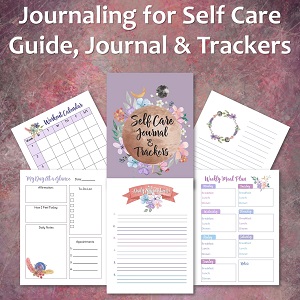 Aging is an inevitable natural process of life. It’s something we do not have complete control over and concerns about aging are completely justifiable.
Aging is an inevitable natural process of life. It’s something we do not have complete control over and concerns about aging are completely justifiable.
A woman’s experience with aging will be different than a man’s just because of the differences in biological makeup. Now, both genders do experience much of the same regarding chronic illnesses, cancer, injuries etc.
However, our focus will be on aging women and as the concerns are real, they should be addressed accordingly.
As we age, our bodies and minds tend to decline in its ability to function at optimal levels. However, there are habits and lifestyle changes which can decelerate the process of many of these for most concerns related to aging.
So…what are some of the common, but real concerns of the aging woman?
Physical “Lifestyle Limiting” Diseases/Conditions
According to a subcommittee of the Public Health Task Force (Whom studies women’s health) woman are more likely than men to experience chronic conditions which limit their ability to function normally.
These include:
- Arthritis
- Diabetes
- Osteoporosis
- Depression
- Drug Abuse
- Cancer
- Heart disease
Women’s health is expected to be an increasing and gradual concern as we progress through the years. This is because women tend to live longer than men on average (According to statistics).
Cancer and heart disease account for the most deaths after age 65 and this is a big emotional concern for many women.
A healthy lifestyle and routine checkups can prevent and manage these chronic conditions.
Mental Health
Mental health shouldn’t be a normal result of aging and it usually isn’t based on lifestyle factors alone. The reason many women struggle with depression, anxiety etc. more than men is a result of the physical problems they experience.
These reasons include:
- The realization and concerns of the decline of their current health condition/s.
- A decreased ability to function like they were previously able to.
- The fact in which they outlive their partners (On average) and loneliness, grief can become harder to move on from.
A woman’s chances of becoming depressed and anxious increase with these factors. This is why it is so crucial to treat and try to prevent these mental health issues from further developing into a more serious condition/s.
According to the Alzheimer’s Association, 11% percent of people over 65 have Alzheimer’s disease. Death due to Alzheimer’s disease has increased by 55% from 1999-2014 and over 90,000 deaths have occurred since 2014 from Alzheimer’s.
Living Conditions/Habits
Older woman are at risk for a decrease in quality of life as they get older.
Some undesirable living conditions/habits include:
- Obesity
- Poverty
- Loneliness
As a result of an increased chance of physically limiting health conditions, women are at risk of obesity because of a lack of the ability to be physically active.
Another issue being financial struggles, is more common for women than men. Lower career earnings (On average), longer lifespan and/or even never have been married has resulted in older women living in poverty like conditions.
Loneliness is a sad but real “reality” which can cause grief in the case of an older woman.
What Can Be Done to Decrease Concerns for Older Women?
Starting early on in one’s life is important for limiting these unfortunate concerns and circumstances. Frequent checkups and living a healthy lifestyle may not eliminate all concerns and conditions but there is less of a chance for conditions to progress into someone more chronic.
Having support from family and people that care can go a long way in managing many concerns that a woman may face as she ages.
No one should have to face life alone and an aging woman’s wellbeing should be a priority.




